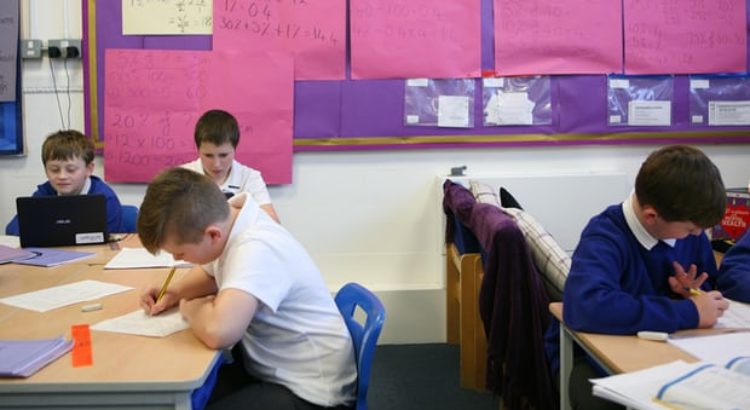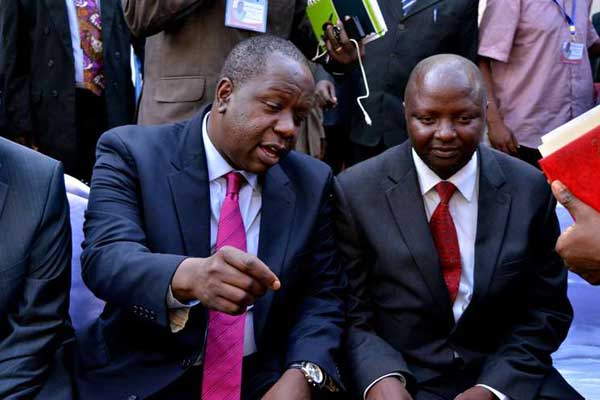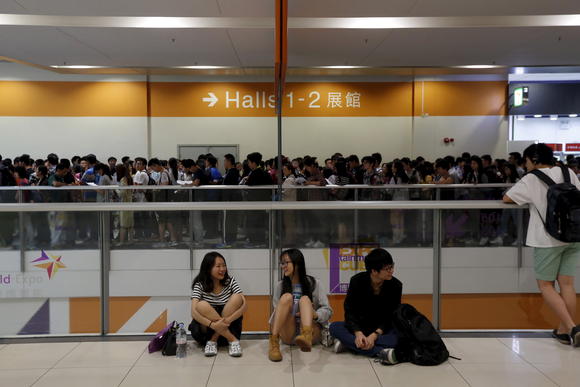Oceania/ Australia/ Source; www.wsws.org.
Despite widespread concerns among parents and teachers, and repeated COVID-19 outbreaks in schools, the “national cabinet” formed by the Australian federal, state and territory governments has pushed most students back into face-to-face classes.
As is occurring internationally, these governments—Liberal-National and Labor alike—have rushed to reopen schools in order to fully open up the economy for corporate profit, placing the health and lives of teachers, parents and students at risk.
The national cabinet claims that social distancing is not necessary in schools and students are “low” risk of infection, despite admitting that reopening schools could result in further coronavirus clusters.
Teacher trade unions have backed and welcomed the return to classrooms, saying it will “bring stability” to teachers, principals and education support staff. The complicity of the unions has left parents to express their concerns through social media, establishing Facebook pages and petitions.
Under conditions where widespread testing is not being conducted, the governments and unions do not know the level of community infection but that has not prevented them from railroading students and teachers back into classes.
Last week in Britain, the Conservative government of Boris Johnson was forced to drop its plans to have all primary children back in school within the next four weeks. The temporary retreat is the result of millions of parents and educators opposing the government, in defiance of the education trade unions.
The reopening of schools in the two most populous Australian states, New South Wales (NSW) and Victoria, has already resulted in multiple primary and secondary students testing positive to COVID-19, forcing temporary school closures.
Today, a third Victoria primary school in two days closed. Strathmore Primary School, in Melbourne’s inner-north, was shut for cleaning and contact tracing after a student became the fifth in the state to test positive for the coronavirus this week.
Yesterday, the Andrews state Labor government announced two such closures. Pakenham Springs primary school in Melbourne’s southeast, reported two students from the same family testing positive, so it would shut for 24 hours. St Dominic’s, a Roman Catholic school at Broadmeadows, in the city’s north said it would close for three days and all students who attended on June 2-3 should be tested for COVID-19.
All these schools are in working-class suburbs, as was an earlier cluster of at least 13 cases in Keilor Downs, which triggered the temporary closure of four schools, with more than 100 students and teachers self-isolating.
During past three weeks in NSW, four Sydney schools—Waverley College, Moriah College, Rose Bay primary school and Laguna Street primary school—have been forced to close for cleaning.
The Laguna Street school, in Sydney’s southern suburbs, closed last weekend for 10 days. A staff member had tested positive after being in contact with the majority of school members while infectious. This now means the self-isolation of over 450 students and staff for the next two weeks as well as the consequential impact on all their families.
Last month, Ash Parmar, a parent and president of the Parents and Citizens Committee (P&C) at a primary school in western Sydney, initiated a petition, signed by nearly 10,000 people, demanding that children not be treated as “guinea pigs” for dangerous government policies. Parents, he said, should be able to exercise their rights to protect their children, and called on the state government to keep providing an online learning platform for children not attending face-to-face classes.
One of the signatories explained: “If social distancing is proven to reduce the spreading of virus, then why does the same rule not apply to school classrooms? As if the virus will bypass school children and only target adults, which is obviously not the case. And if social distancing cannot be maintained in the classroom, then the NSW government should think again about their decision to force parents to send their children to school!”
The NSW government’s response has been both threatening and dismissive. Premier Gladys Berejiklian said: “Their children will be marked as absent.” Education Minister Sarah Mitchell insisted that “the pandemic would not be considered an adequate excuse to keep children at home.”
Implicit in their threat that “unexplained absences” of more than three days without a doctor’s certificate would be “followed up,” while not openly stated, was that truancy measures and fines could result.
In response, the petition organisers stated: “We are not asking anyone to change any policy. You are the one who is changing policies on the fly. The policy was that students at home can study through the e-learning platform. We just want that to stay on for a few weeks more till we get through this experiment. Absence codes used were always at the Principal’s discretion, leave it there.”
Since Berejiklian’s statement, parents have posted incidences where student absences were marked as unjustified, even when a doctor’s certificate was provided. Others wrote of the lack of consistency across schools, saying the policy seemed to differ from principal to principal. One parent who has two children at different schools wrote: “One was very understanding, the other not so much. We have a couple of weeks on the doctor’s certificate but not sure how things will go after that.”
Another parent commented: “The NSW premier threatened us if kids are off for 3 days. My kids will be off for 4 days as a protest. I hope other parents do the same, power in numbers. Hopefully the NSW premier goes back to the phased plan, or better yet, just opens a new school online for remote learning for parents that want and can keep kids at home and thereby helping to keep class sizes down.”
The intransigence of the governments, combined with the collaboration of the education unions, has forced parents, like teachers, to seek individual forms of action to protect their children.
Another teacher/parent voiced general distrust of the government’s motivations: “I don’t have faith in the politicians who have made this decision. I don’t have confidence that the school I work in or the other school I send my children to, will be safe for those who attend. I’ve seen the ‘cleaning’ and ‘contact tracing’ first hand. It’s a joke and this decision is driven by politics and greed, not public safety.”
The Committee for Public Education (CFPE) published a statement on May 28 opposing the rushed reopening of school systems in the states and territories where there is community transmission of COVID-19—currently NSW and Victoria. The statement called for the formation of safety action committees to protect the safety and wellbeing of students and staff threatened by the coronavirus pandemic.
This remains an urgent requirement. Rather than turning to individual courses of action to protect children, we urge parents to unite with teachers and other community members to form action committees within every school, independent of the unions and employers, with the aim of intervening to protect school communities.
We urge all parents and educators looking to develop this discussion to contact the CFPE.
Source of the news: https://www.wsws.org/en/articles/2020/06/16/teac-j16.html












 Users Today : 19
Users Today : 19 Total Users : 35459614
Total Users : 35459614 Views Today : 50
Views Today : 50 Total views : 3418022
Total views : 3418022